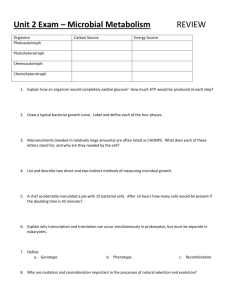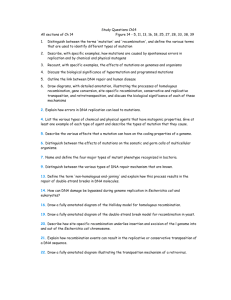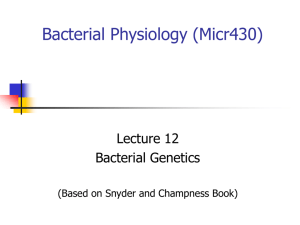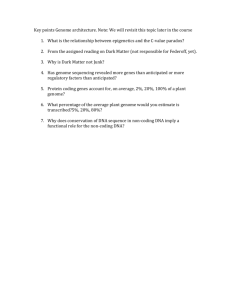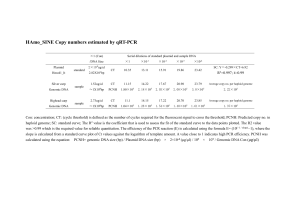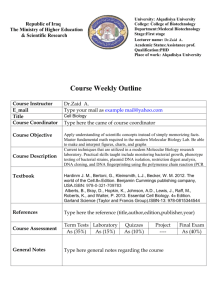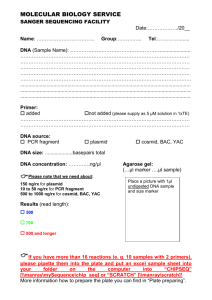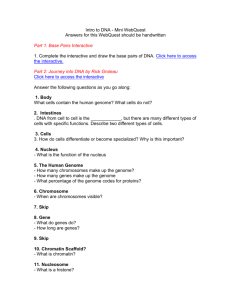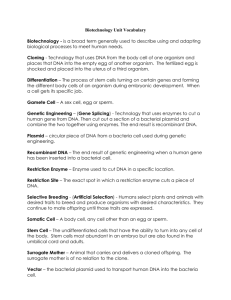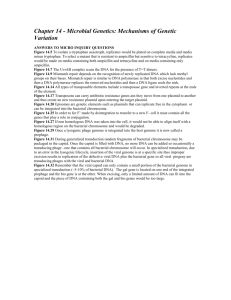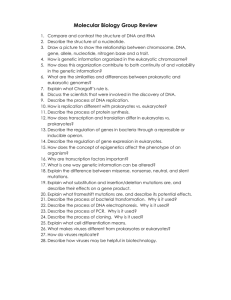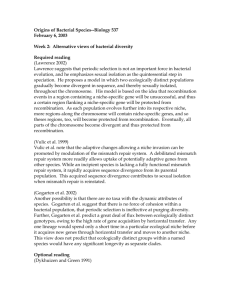Recombineering
advertisement
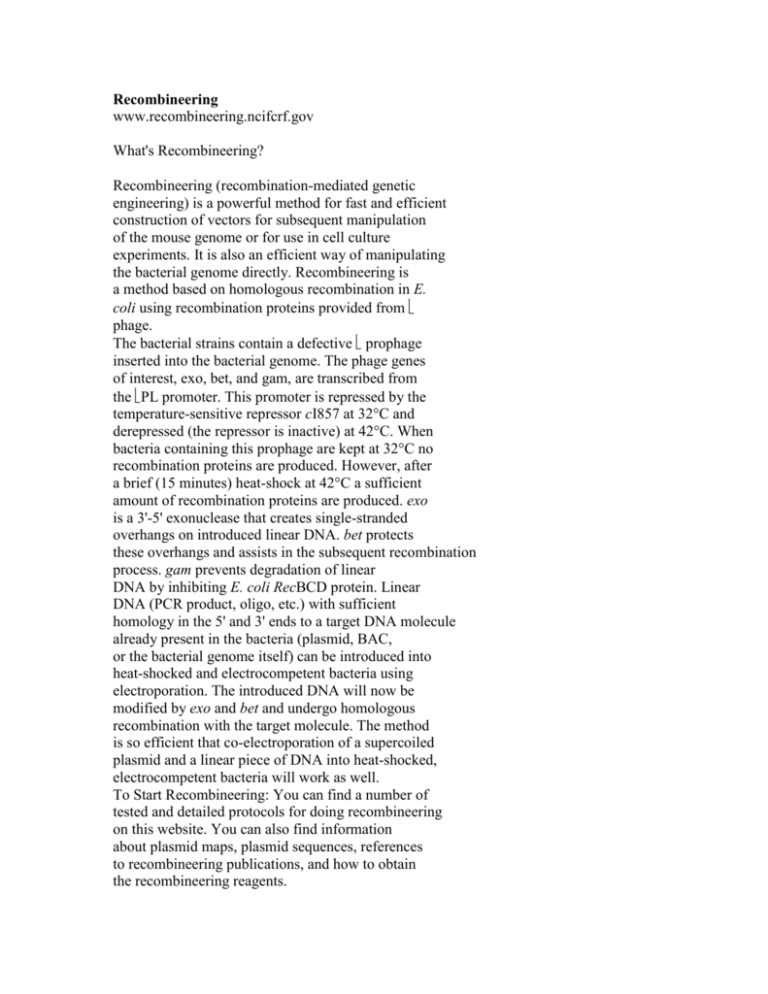
Recombineering www.recombineering.ncifcrf.gov What's Recombineering? Recombineering (recombination-mediated genetic engineering) is a powerful method for fast and efficient construction of vectors for subsequent manipulation of the mouse genome or for use in cell culture experiments. It is also an efficient way of manipulating the bacterial genome directly. Recombineering is a method based on homologous recombination in E. coli using recombination proteins provided from phage. The bacterial strains contain a defective prophage inserted into the bacterial genome. The phage genes of interest, exo, bet, and gam, are transcribed from the PL promoter. This promoter is repressed by the temperature-sensitive repressor cI857 at 32°C and derepressed (the repressor is inactive) at 42°C. When bacteria containing this prophage are kept at 32°C no recombination proteins are produced. However, after a brief (15 minutes) heat-shock at 42°C a sufficient amount of recombination proteins are produced. exo is a 3'-5' exonuclease that creates single-stranded overhangs on introduced linear DNA. bet protects these overhangs and assists in the subsequent recombination process. gam prevents degradation of linear DNA by inhibiting E. coli RecBCD protein. Linear DNA (PCR product, oligo, etc.) with sufficient homology in the 5' and 3' ends to a target DNA molecule already present in the bacteria (plasmid, BAC, or the bacterial genome itself) can be introduced into heat-shocked and electrocompetent bacteria using electroporation. The introduced DNA will now be modified by exo and bet and undergo homologous recombination with the target molecule. The method is so efficient that co-electroporation of a supercoiled plasmid and a linear piece of DNA into heat-shocked, electrocompetent bacteria will work as well. To Start Recombineering: You can find a number of tested and detailed protocols for doing recombineering on this website. You can also find information about plasmid maps, plasmid sequences, references to recombineering publications, and how to obtain the recombineering reagents. List of Available Reagents: If you're interested, and are not with a for-profit company, please visit the reagents section for the application procedure and reagents will be shipped at no charge. Worldmeters http://www.worldometers.info/ Statistics you probably never knew existed.
